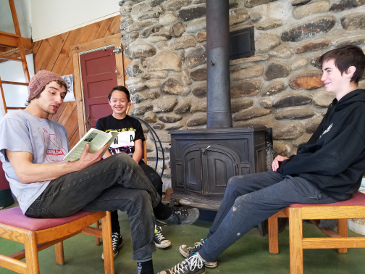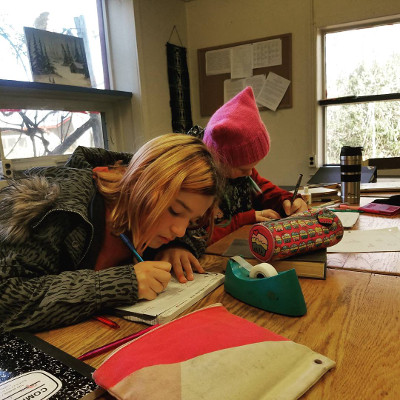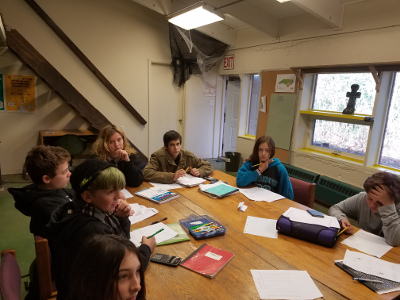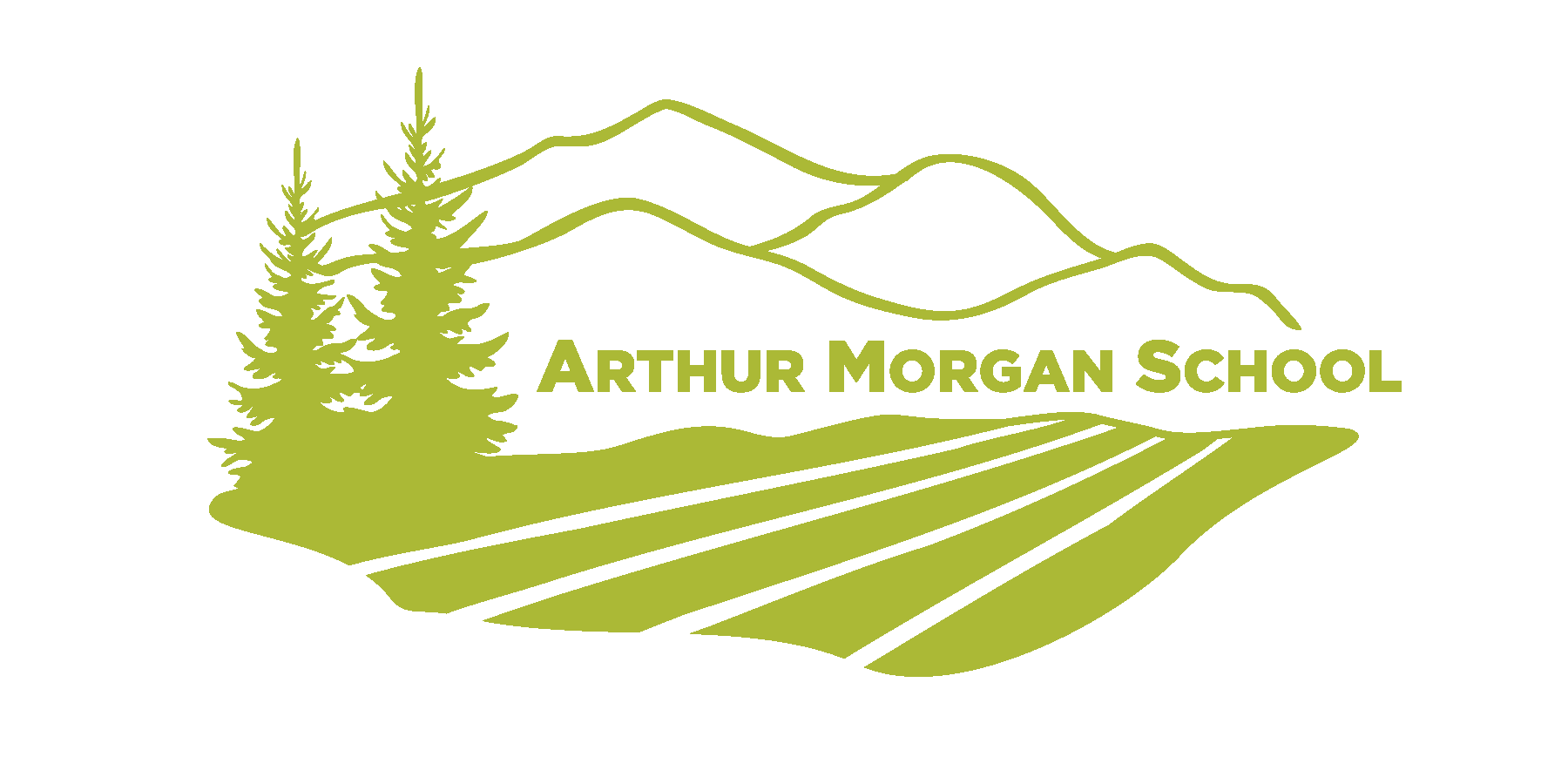December Unit Rounds Out Critical Thinking Based Learning

When I ask people what they remember learning in middle school, they often reminisce about specific activities they did, like the time they burned a gummy bear to see how many calories it contained. They remember specific moments that struck them as fun or inspiring. Most people can’t remember the reasons for these lessons or if they were even a part of some bigger topic. They just remember how cool it was when the gummy bear burned up.
Asking the Big Questions
 At Arthur Morgan School, we try to provide context for our lessons. Our science and history internships take place in six week trimesters in which we cover specific topics. The extended time dedicated to the topic allows for these memorable experiments to turn into intensive inquiries.
At Arthur Morgan School, we try to provide context for our lessons. Our science and history internships take place in six week trimesters in which we cover specific topics. The extended time dedicated to the topic allows for these memorable experiments to turn into intensive inquiries.
For instance, when AMS students performed the the gummy bear experiment, they did it during an entire course on sugar. Sugar is big topic for middle schoolers. Any parent could tell you they are basically obsessed with the stuff. Using the student’s natural interest, teachers used sugar to ask bigger questions about world. Students looked at why sugar is so popular despite its negative health effects. They examined the politics of food manufacturing and discussed the social economic gap that spans different sugar consumers. They even kept a journal about their own sugar use and reflected what influenced their choices.
When I ask AMS alumni about the gummy bear experiment, they still remember how cool it was, but they also reflect to me disturbing discoveries they made about their own sugar consumption. They tell me how the class still continues to influence their behavior. AMS’s six week trimester schedule supports critical thinking based learning. It provides time for students and teachers to dive deep into a subject and ask the big questions. As a result, students leave AMS remembering concepts and ideas that have long lasting impact. They use what they learn for the rest of their lives.
Discovering Interests
 Sometimes though you don’t want to dive deep. Students are not sure if a specific topic interests them and are nervous about dedicating six whole weeks to learning about it. That is why AMS has the December Unit. For three weeks in December, students get to dip their toes into a subject they might not normally choose. They are introduced to the topic and learn about it briefly without committing to it heavily. The December Unit allows students to sample a subject and see if they actually like it. If they do, they might choose a related course later on in their AMS career.
Sometimes though you don’t want to dive deep. Students are not sure if a specific topic interests them and are nervous about dedicating six whole weeks to learning about it. That is why AMS has the December Unit. For three weeks in December, students get to dip their toes into a subject they might not normally choose. They are introduced to the topic and learn about it briefly without committing to it heavily. The December Unit allows students to sample a subject and see if they actually like it. If they do, they might choose a related course later on in their AMS career.
Courses in the past include an introduction to Hindi, immunology, print making, superhero physics, speech writing and philosophy. Typically students’ and teachers’ attitudes toward these courses are pretty relaxed. Students may create portfolio pieces or complete projects, but the focus is primarily on discovery.
For instance, in the Hindi class, one student focused solely on learning the alphabet while other students wrote about the language’s culture and history. In the speech writing class, students were able to choose any topic they wanted and present a 15 minute speech on it, If these courses were any longer, many of our middle schoolers would become bored and lose interest in them. At just three weeks, the December Unit gives just the perfect amount of time to satisfy their interests before moving on.
-by Nicholas Maldonado
AMS’s academics offer lots of great opportunities for critical thinking based learning.
Learn More
